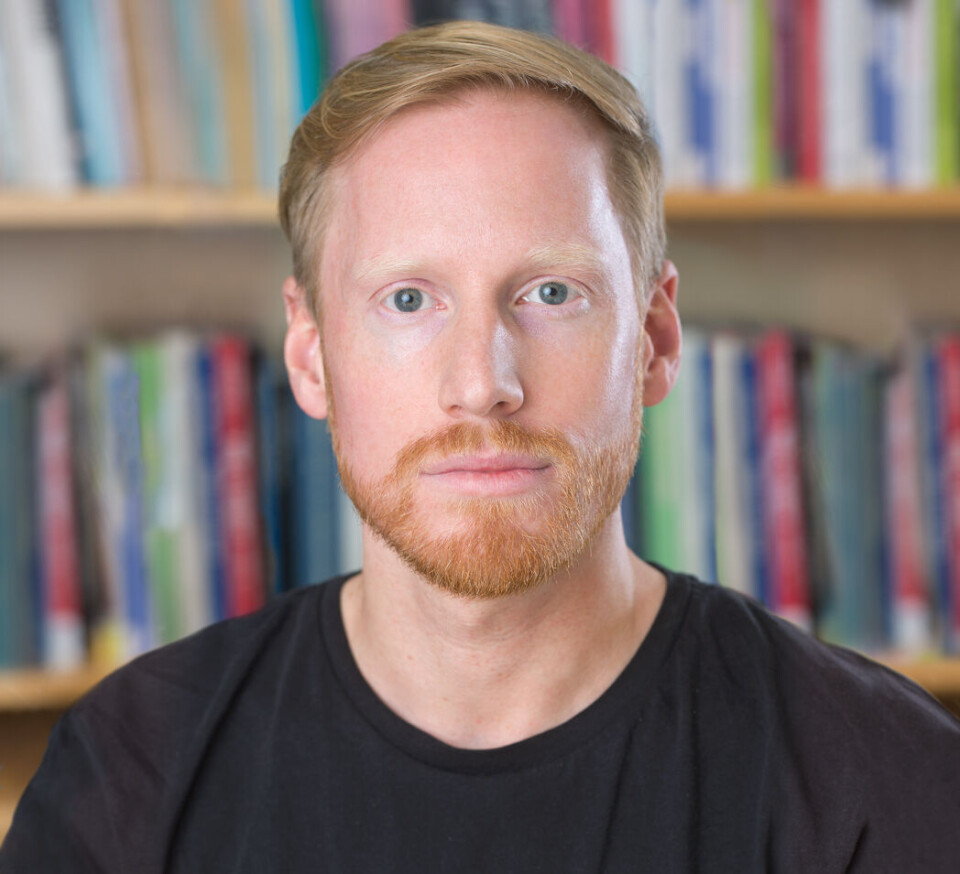THIS ARTICLE/PRESS RELEASE IS PAID FOR AND PRESENTED BY Oslo Metropolitan University - read more

Unemployment is harmful to health – especially for men
Men suffer more health problems as a result of unemployment than women.
Unemployment is harmful to health, according to recent research from the Norwegian Social Research Institute NOVA at OsloMet.
“It causes significant health problems in both women and men, such as increased levels of stress, anxiety, depression, and other mental health problems. It also increases mortality,” says researcher Kristian Heggebø, who is behind the study.
He examined unemployed women and men in the years 2000, 2006, and 2011, and looked at the consequences unemployment has had on their health up until 2017.

The findings have proved to be consistent and unequivocal: Unemployment has a negative impact on people's health.
“The findings suggest that unemployment is so painful and difficult for those who experience it that their state of health can be permanently impaired,” Heggebø says.
Higher mortality rate in men
However, there are also some major and noteworthy differences between the genders, he adds.
Men appear to be more severely impacted by unemployment.
They are hospitalised more often than unemployed women, and once they return to work, they have a higher rate of sick leave. Moreover, the mortality rate is significantly higher among men who have been out of work, the findings show.
“Men who have experienced unemployment have an 80 to 90 per cent higher risk of dying during the next 10 years than those who have remained in work. For women, the corresponding figure is about 40 per cent,” Heggebø says.
He believes that the excess mortality rate among the unemployed indicates that they have not managed to rid themselves of all the adverse health consequences, even if they returned to work.
“It seems to be something they carry with them throughout their lives, which results in them dying younger than people who have been in continuous employment,” he says.
Slower to seek help
Heggebø has not studied the reasons why unemployment is more difficult for men than women, but he nonetheless has some thoughts on possible explanations.
One possible reason is that women are often better at dealing with difficult life experiences. They are generally more adept at expressing that things are difficult, and they are more likely to seek help and support from friends and loved ones, the researcher explains.
“Men, on the other hand, often have a higher threshold for doing so and are therefore more likely to suffer in silence. It means that what starts as a minor health problem may well grow into something bigger and more difficult,” he says.
It is also a fact that men are slower to seek professional healthcare.
“This is often linked to the ideal of masculinity and the fear that asking for help shows weakness,” he says.
Likewise, he believes the differences in how people cope with unemployment may also be linked to traditional gender patterns.
“Perhaps men feel more stigmatised than women if they are unemployed, and feel a greater sense of shame and inferiority at not being part of a working community. These feelings, which women may possibly be better at dealing with, may contribute to the development of more health problems among men,” Heggebø speculates.
Calls for more action from the authorities
What the researcher feels more confident about, however, is that more large-scale studies on gender, unemployment, and health will be a useful way of gaining more knowledge about the issue.
This, in turn, would contribute to a better understanding of effective and targeted measures to prevent people from becoming ill due to unemployment.
He calls for more action from the authorities.
“The authorities need to realise to a greater extent that unemployment is not just a socioeconomic problem. It is equally a threat to public health. This is why we need to develop practices that give people the help they need,” he says.
He suggests that one possible measure would be for local Labour and Welfare offices to follow up unemployed people’s health as much as they follow up their employment activities.
“I think that this would have a twofold effect,” he says, pointing out that unemployed people would get help to improve their state of health, which, in turn, would make it easier to return to the labour market.
“If you are not given the healthcare you need, and start to struggle with poor self-esteem, anxiety, and depression, it will be even harder to compete in the job market. It is all closely linked,” he concludes.
Read more about the research project Welfare state life courses: Social inequalities in the co-evolution of employment, health and critical life events (WELLIFE).
Reference:
Kristian Heggebø. Gendered health consequences of unemployment in Norway 2000–2017: a register-based study of hospital admissions, health-related benefit utilisation, and mortality, BMC Public Health, 2022. DOI: 10.1186/s12889-022-14899-8

This article/press release is paid for and presented by OsloMet
This content is created by Oslo Metropolitan University's communication staff, who use this platform to communicate science and share results from research with the public. Oslo Metropolitan University is one of more than 80 owners of ScienceNorway.no. Read more here.
See more content from OsloMet:
-
Ukrainian refugees need jobs. So why aren’t more of them being hired?
-
The mural in Oslo City Hall conceals a dramatic story – about the artist’s own life
-
Mental health problems are widespread among Ukrainian refugees
-
Only 1 in 10 Ukrainians want to return
-
How class divisions are maintained in Norway
-
Many adolescents think they're not interested in politics – until a teacher gets them to reflect on their own lives




































